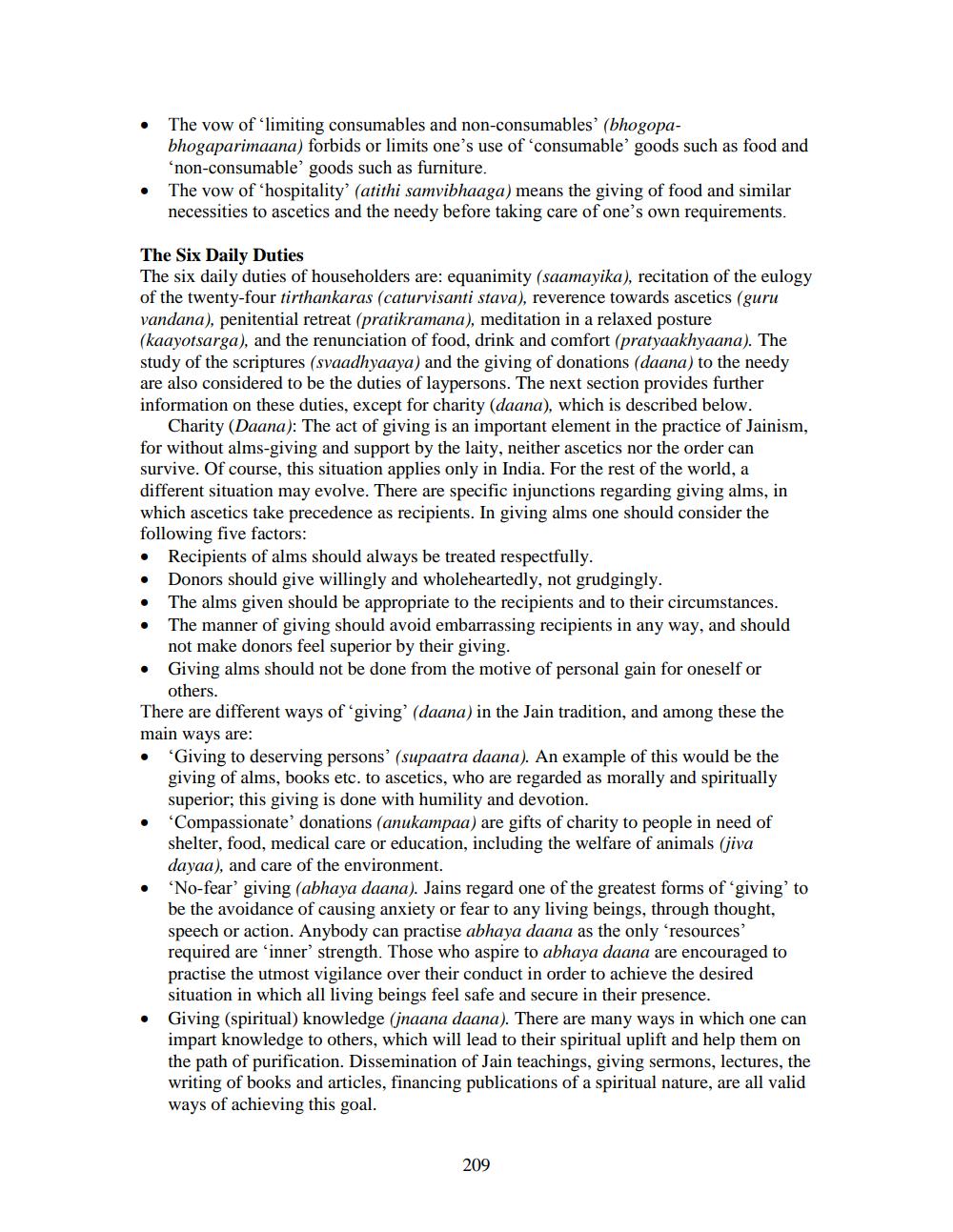________________
The vow of limiting consumables and non-consumables' (bhogopabhogaparimaana) forbids or limits one's use of consumable' goods such as food and 'non-consumable' goods such as furniture. The vow of 'hospitality' (atithi samvibhaaga) means the giving of food and similar necessities to ascetics and the needy before taking care of one's own requirements.
The Six Daily Duties The six daily duties of householders are: equanimity (saamayika), recitation of the eulogy of the twenty-four tirthankaras (caturvisanti stava), reverence towards ascetics (guru vandana), penitential retreat (pratikramana), meditation in a relaxed posture (kaayotsarga), and the renunciation of food, drink and comfort (pratyaakhyaana). The study of the scriptures (svaadhyaaya) and the giving of donations (daana) to the needy are also considered to be the duties of laypersons. The next section provides further information on these duties, except for charity (daana), which is described below.
Charity (Daana): The act of giving is an important element in the practice of Jainism, for without alms-giving and support by the laity, neither ascetics nor the order can survive. Of course, this situation applies only in India. For the rest of the world, a different situation may evolve. There are specific injunctions regarding giving alms, in which ascetics take precedence as recipients. In giving alms one should consider the following five factors: • Recipients of alms should always be treated respectfully. • Donors should give willingly and wholeheartedly, not grudgingly.
The alms given should be appropriate to the recipients and to their circumstances. The manner of giving should avoid embarrassing recipients in any way, and should not make donors feel superior by their giving. Giving alms should not be done from the motive of personal gain for oneself or
others. There are different ways of giving' (daana) in the Jain tradition, and among these the main ways are: • 'Giving to deserving persons' (supaatra daana). An example of this would be the
giving of alms, books etc. to ascetics, who are regarded as morally and spiritually superior; this giving is done with humility and devotion.
Compassionate' donations (anukampaa) are gifts of charity to people in need of shelter, food, medical care or education, including the welfare of animals (jiva dayaa), and care of the environment. 'No-fear giving (abhaya daana). Jains regard one of the greatest forms of giving to be the avoidance of causing anxiety or fear to any living beings, through thought, speech or action. Anybody can practise abhaya daana as the only resources required are 'inner' strength. Those who aspire to abhaya daana are encouraged to practise the utmost vigilance over their conduct in order to achieve the desired situation in which all living beings feel safe and secure in their presence. Giving (spiritual) knowledge (inaana daana). There are many ways in which one can impart knowledge to others, which will lead to their spiritual uplift and help them on the path of purification. Dissemination of Jain teachings, giving sermons, lectures, the writing of books and articles, financing publications of a spiritual nature, are all valid ways of achieving this goal.
209




